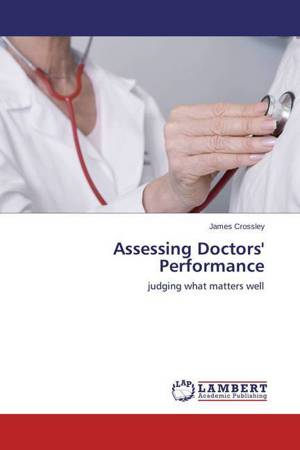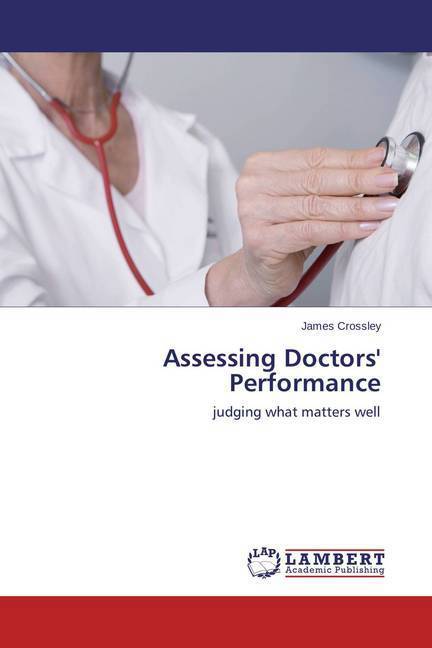
- Afhalen na 1 uur in een winkel met voorraad
- Gratis thuislevering in België vanaf € 30
- Ruim aanbod met 7 miljoen producten
- Afhalen na 1 uur in een winkel met voorraad
- Gratis thuislevering in België vanaf € 30
- Ruim aanbod met 7 miljoen producten
Zoeken
€ 72,45
+ 144 punten
Omschrijving
High quality assessment is key for the education and regulation of any profession - including medicine. Unfortunately, the most important aspects of professional performance are often the most difficult to assess. Since about 1990, the developed world has seen a powerful public and political call to strengthen professional regulation. The assessments developed to answer that call have the potential to either enhance or undermine the future of the profession. This book contains work originally submitted to the University of Oxford, UK in 2003 as a DM thesis. That work sought to provide some of the building blocks for high quality assessment of doctors in the workplace. The assessment methods described in the book have been implement in the UK on a national scale. More important however, are the more general lessons that high-level professional assessment depends on judgement rather than objective measurement. Generalisability theory provides an excellent tool for evaluating the dependability of judgements.
Specificaties
Betrokkenen
- Auteur(s):
- Uitgeverij:
Inhoud
- Aantal bladzijden:
- 196
- Taal:
- Engels
Eigenschappen
- Productcode (EAN):
- 9783659683152
- Verschijningsdatum:
- 30/01/2015
- Uitvoering:
- Paperback
- Afmetingen:
- 150 mm x 220 mm
- Gewicht:
- 295 g

Alleen bij Standaard Boekhandel
+ 144 punten op je klantenkaart van Standaard Boekhandel
Beoordelingen
We publiceren alleen reviews die voldoen aan de voorwaarden voor reviews. Bekijk onze voorwaarden voor reviews.







